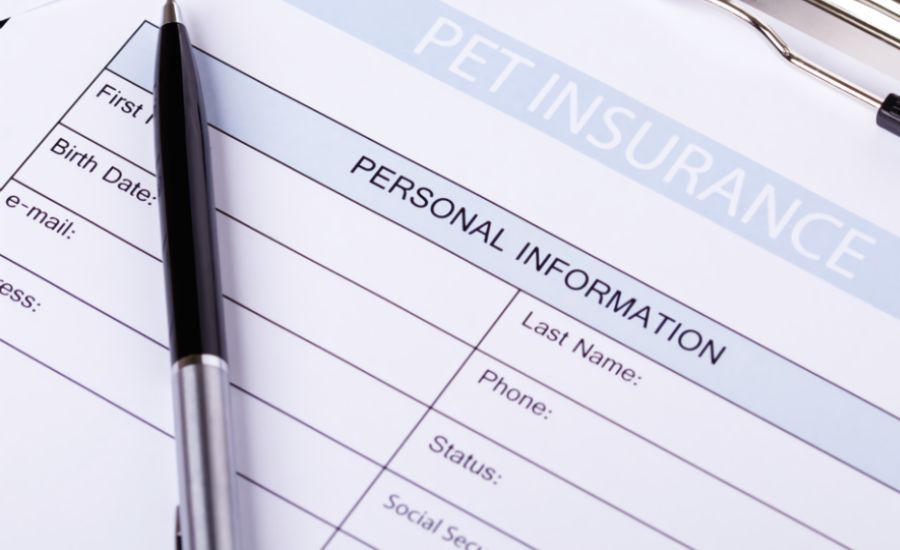Disability insurance for veterinarians can provide you with financial protection if illness or injury disrupts your ability to work. It helps cover medical expenses, allowing you to focus on recovery without using your retirement savings. The coverage could also extend to your practice-related expenses, keeping your business operations functioning when you are unable to work. Here are factors to look for in a disability insurance provider:
Policy Cancellation Terms
Policy cancellation terms outline the conditions under which your coverage can be terminated, either by you or the insurance company. These clauses in disability insurance for veterinarians could impact how you align your finances. Clear cancellation terms are more likely to protect you from unexpected loss of coverage and help you plan for any career changes.
Examine any fees that are associated with early cancellation by asking the provider. Some policies offer a grace period for cancellation without penalties, while others have more strict conditions. Your understanding of these details can help you maintain control over your insurance decisions throughout your career.
Premium Increase Potential
It is advisable to analyze how premium increases might affect your budget over time. Policies with transparent pricing structures and clear explanations of rate change factors offer more predictability. This foresight should help you to select a policy that remains financially viable throughout your veterinary career. Some companies offer level premiums, while others may adjust rates determined by factors such as age or claims history.
Waiting Period Options
The waiting period, or elimination period, is the time between the onset of disability and when you start receiving benefits. This period, typically ranging from 30 to 180 days, might impact your short-term financial planning. Your emergency savings and ability to manage without an active income may influence the ideal waiting period for your situation. Shorter waiting periods often result in higher premiums, while longer periods can lower payments. Policies offering multiple waiting period options may let you tailor this aspect to your financial situation and risk tolerance.
Benefit Period Durations
The benefit period usually determines the length of time you’ll receive payments if you become disabled. Options typically range from a few years to retirement age. Your long-term financial obligations at your clinic are an appropriate guide for your benefit period selection. Longer benefit periods should offer more comprehensive protection.
Your age, career stage, and retirement plans can all play a role in determining the ideal benefit period. Some policies offer different benefit periods for different types of disabilities. Balancing comprehensive coverage with affordable premiums could secure adequate protection throughout your veterinary career.
Policy Modification Options
You may need a policy that allows changes in the future based on events in your career and personal life. Some policy providers supply options that facilitate flexible coverage, such as those that adjust the amount of benefits or alter the elimination period. These features can enable your policy to stay current as long as your premium subscription is still valid.
Communicating with a reputable insurer can help one grasp the necessary steps to alter the policy coverage. You also get an opportunity to learn the cost that may occur in the process of altering the policy before it matures. While some insurers may want to conduct medical underwriting for some modifications, other insurers may offer liberal terms.
Own Occupation Coverage Details
Own occupation coverage defines disability as determined by your inability to perform the specific duties of your veterinary specialty. This feature is beneficial for maintaining your livelihood if you become disabled. The policy should align with your current role while accommodating your future pursuits.
Examine how different providers implement their own occupation coverage. Some policies offer this protection for a limited time, while others provide it for the entire benefit period. Comprehensive occupation coverage affirms you are protected even if you can work in a different capacity outside your veterinary specialty.
Residual Disability Benefits
Residual disability benefits aim to give you continuing injury support if physically impaired, although still capable of working or earning a living. These benefits can provide a percentage of the total disability benefit, depending on the extent of the income loss. Discuss with your potential insurer the relevance of residual benefits to your unique veterinary practice field.
Increased residual or recovery benefits could allow you to return to work without the burden of further rehabilitation costs. Substantial coverage for different disability situations, such as partial disability or periods of rehabilitation, should reduce your liability exposure. The coverage may offer financial protection, allowing you, as a veterinarian, to continue providing for your family.
Invest in Disability Insurance for Veterinarians
To maximize your policy benefits, maintain open communication with your disability insurance provider. Regularly review your policy to reflect changes in your income, specialization, or practice structure. Inform your insurer of significant career developments or health changes. Invest in disability insurance for veterinarians and increase your financial security.
Stay Connected With: celebriches

Jennifer David is the creative force behind CelebRiches, your go-to source for celebrity financial exploits. With an unwavering passion for the entertainment industry, she delivers in-depth insights into celebrities’ net worth, combining thorough research with a captivating narrative. Explore the stars’ fiscal journeys through Jennifer’s expert lens, where finance meets fame most engagingly.
